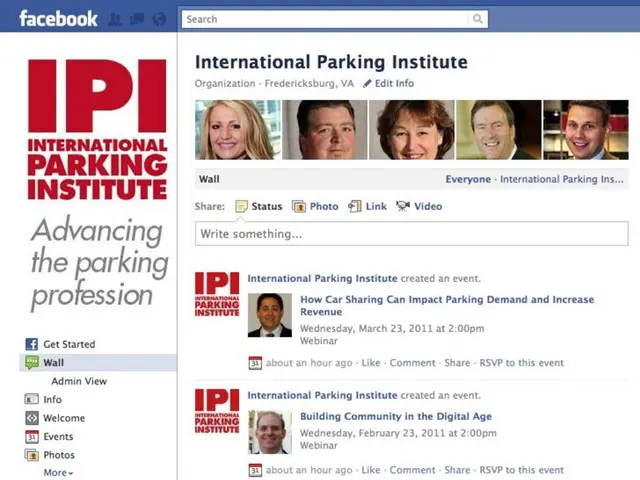Potential Surge of Measles Outbreaks in U.S. over the Next Quarter-Century due to Prospective Decreases in Vaccination Rates
In the United States, upon falling vaccination rates, we could witness a startling surge of measles cases amounting to tens of millions over the next 25 years, as per research published by JAMA. This grim forecast demands attention in a country plagued by vaccine skepticism, particularly within high-level government positions and an alarmingly uninformed populace.
Researchers from Stanford University have outlined a distressing scenario wherein a 50% reduction in childhood vaccinations would produce an astounding 51.2 million measles cases during 25 years, alongside an appalling 9.9 million cases of rubella, 4.3 million cases of poliomyelitis, and 197 cases of diphtheria. The repercussions of such a scenario would be devastating, resulting in over 10.3 million hospitalizations and more than 159,200 deaths.
What about a more hopeful outlook where vaccination rates remain the same as 2025? Even so, the next 25 years would still witness well over 850,000 cases of measles in the U.S. A mere 10% reduction in MMR immunization rates could send measles cases spiraling, amounting to 11.1 million cases over the following 25 years. Conversely, a 5% rise in vaccinations could result in a mere 5,800 measles cases. For measles, a vaccination rate of approximately 95% is necessary to achieve herd immunity. The researchers estimate the current vaccination coverage in their models to range between 87.7% and 95.6%.
Immunization rates differ greatly by state. New York, for instance, boasted an estimated childhood vaccination rate of 97.7% for the 2023-24 school year as per the CDC, whereas Idaho barely managed a rate of 79.6%.
Before the measles vaccine's release in 1963, measles afflicted anywhere between 3 million and 4 million Americans annually, according to the CDC. In those days, tens of thousands were hospitalized, with around 400-500 deaths each year. Measles, however, is hardly the only trouble it causes; measles can induce what's called immune amnesia, consequently impairing an infected individual's ability to battle other infections.
Currently, the U.S. sees its worst measles outbreak in a quarter century, with at least 800 cases confirmed in 25 states, as reported by the CDC. Illinois recently reported its first confirmed case in late-March. Tragically, three lives have been claimed this year by the measles, including two Texas children and an adult from New Mexico.
Sadly, some parents of the deceased children have refused vaccination, attributing the deaths to their refusal. These families frequently seek out anti-vaccine organizations like Children's Health Defense, where they find unwarranted support in their neglect of public health safety. Additionally, Robert F. Kennedy Jr., the current head of the Department of Health and Human Services, once chaired Children's Health Defense.
The potential consequences of compromised health care policies have never been more evident than now, particularly considering that President Donald Trump has expressed interest in remaining in office beyond his term. Maintaining proper vaccination rates will be a significant challenge in the coming years, but the stakes are far too high to turn a blind eye.
- To counteract the grim forecast, a focus on science and technology could provide innovative solutions for improving vaccination rates and public education about the importance of immunizations.
- In the future, simulations can be used to model different vaccination rate scenarios, helping us understand the potential impact on health, medical-conditions, and health-and-wellness.
- As the future unfolds, we must prioritize cancer research and mental-health initiatives to address the growing concerns in these areas, while also ensuring sufficient attention to health and wellness.
- The reduction in vaccination rates coincides with the rise in general-news outlets peddling misinformation, which may contribute to vaccine skepticism.
- As the war-and-conflicts in various regions of the world escalate, migration increases, and with it come concerns over the spread of infectious diseases, emphasizing the need for effective vaccination programs.
- In the realm of politics, officials can encourage immunization campaigns, address vaccine skepticism, and work towards improving vaccination rates for the overall benefit of public health.
- Crime-and-justice issues, such as criminal activities related to the production and distribution of counterfeit vaccines, have a negative impact on vaccination rates and public trust in vaccination programs.
- Efforts will be made to improve the current vaccination coverage rates, which, according to the CDC, range between 87.7% and 95.6%, to meet the necessary levels required for herd immunity.
- Governments must take measures to address vaccine hesitancy, particularly within high-level positions, and engage in campaigns that raise awareness about the importance of vaccinations for not only measles but also other preventable diseases like rubella, poliomyelitis, and diphtheria.
- As the future unfolds, it is crucial that we remain vigilant and proactive in our approach to vaccination, as the awfulness of the potential consequences of compromised immunization rates continues to be apparent.








